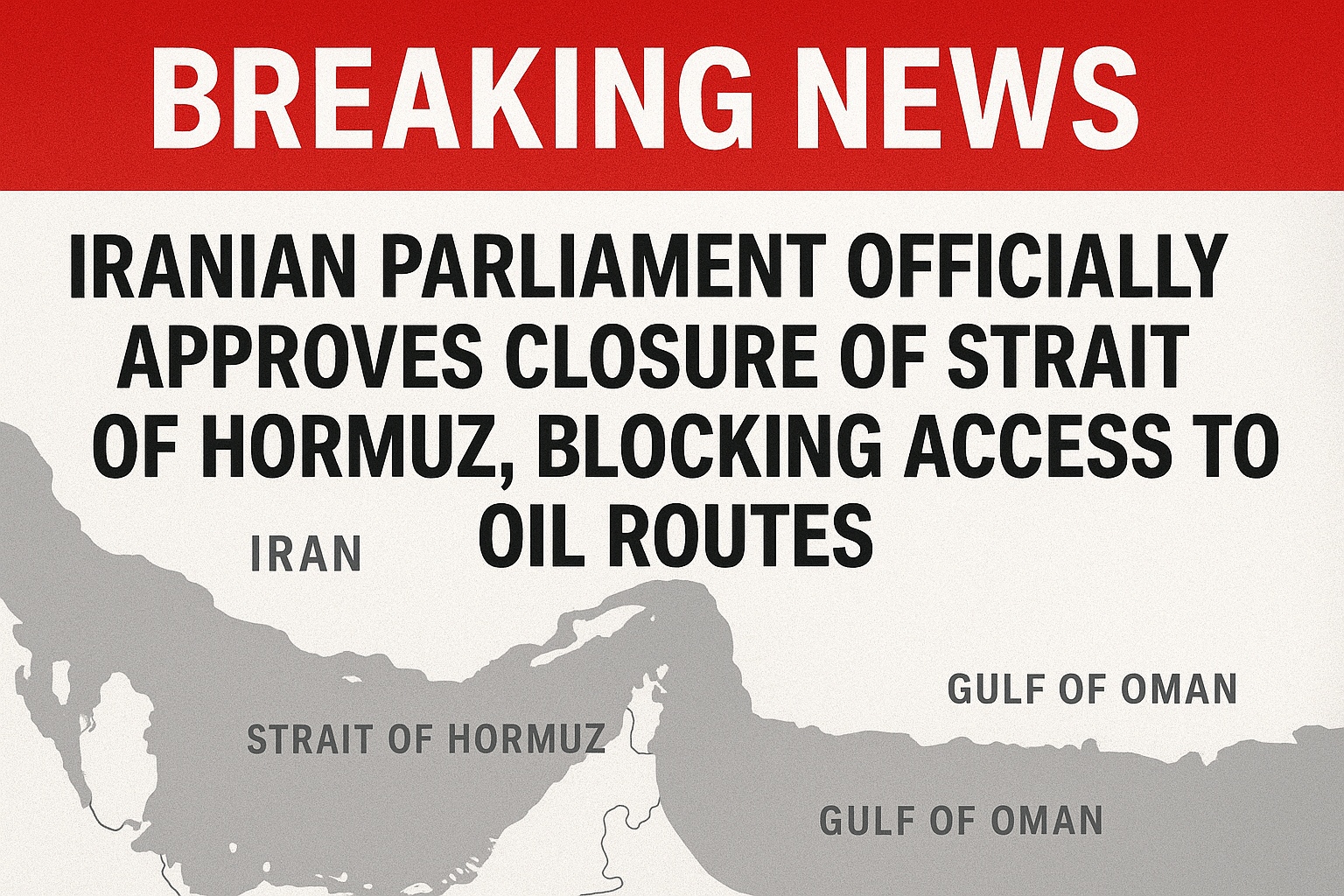BREAKING NEWS:
Tehran, June 22, 2025 – In a historic and high-stakes move, the Iranian parliament has officially approved legislation to close the Strait of Hormuz, one of the world’s most vital oil transit chokepoints. The decision, announced after an emergency session in Tehran, effectively blocks maritime access to a waterway responsible for roughly a fifth of global oil trade.
The measure—passed with
overwhelming support—comes amid escalating tensions in the region and follows
repeated warnings from Iranian officials that strategic interests would be
defended "by any means necessary."
The closure of the Strait of
Hormuz is expected to send shockwaves through global energy markets. Oil prices
have already spiked in early trading as governments and shipping companies
scramble to respond to the abrupt disruption of key supply routes linking the
Persian Gulf to international markets.
Iranian state media framed the
move as a response to "continued aggression and sanctions by hostile
states," stating that all commercial and military vessels are now barred
from passage "until further notice." The Iranian Navy has reportedly
been placed on high alert, and Western military sources confirm increased
activity in the region.
International leaders have called
for restraint, with the United Nations urging immediate dialogue to avoid
further escalation. The United States and European Union are believed to be
preparing diplomatic and economic responses, with possible emergency sessions
at the UN Security Council expected within hours.
The Strait of Hormuz, only 21
miles wide at its narrowest point, has long been regarded as the most
strategically important oil route in the world, carrying more than 18 million
barrels per day. Any sustained disruption could have severe global economic repercussions.
This is a developing story.
Updates to follow as more information becomes available.



.jfif)



No comments